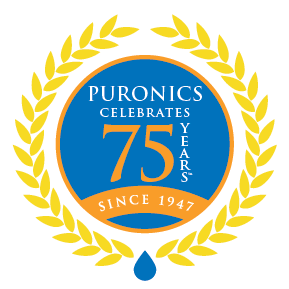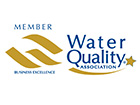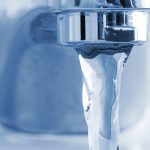Last Updated on May 26, 2021
Water filters, softeners and conditioners, salt vs. salt free…what does it all mean? If you’re overwhelmed and confused by all of it, you’re not alone. In this post, we explain the most common types of home water treatment systems.
Water Filters
Typically the most basic type of water treatment, water filters reduce one or more contaminants. Some filters are very simple and just use small holes that larger particles can’t fit through. Others are more complex, and the filter media actually changes the chemical structure of contaminants so they are no longer harmful. These systems can be as small as a faucet or pitcher filter, or a large whole-house system. Depending on their design, they can reduce a wide variety of contaminants, including everything from iron and manganese to chlorine and chloramines. Puronics whole-house filters include our problem water treatment systems.
Water Softeners
A water softening system uses a technology called ion exchange to replace calcium and magnesium ions (also called “hardness ions”) with sodium or potassium ions. The hard water passes through a bed of ion exchange resin, then flows out of the tank into the home as soft water. There are many reasons to soften your water. In fact, a water softener is the only home appliance that saves you money just by using it.
Water Softener Filter Combos
Want more than just soft water? These multimedia systems have different types of filter media within a single tank that improve the water throughout your home in multiple ways. For example, Puronics bacteriostatic water softeners inhibit the growth of bacteria and filter, soften and refine the water. Our Chlorostatic™ water conditioners reduce hardness, chlorine and chloramines and eliminate unpleasant tastes and odors.
Scale Inhibitors
While often referred to as “salt-free water softeners”, these systems don’t actually soften water. What they do is inhibit scale buildup by preventing the minerals from sticking to surfaces like pipes and water heaters. While they don’t provide all the benefits of a water softener, they can help reduce the damage hard water normally causes to plumbing and appliances. There are several kinds, but by far the most effective is a technology called nucleation assisted crystallization, which converts the minerals into microcrystals. Our Goodspring™ CWS is a multimedia water conditioner that inhibits scale and filters and refines your water.
Reverse Osmosis
This type of water treatment purifies water; it’s even used for desalination. It works by pushing water through a semipermeable membrane that only allows the water molecules through, and the contaminants are flushed down the drain. In most cases, the reverse osmosis system is installed under the sink along with a separate tap for the purified water. You can read all about these systems in our blog post How Does Reverse Osmosis Work?
What Else Should I Know?
It can be helpful to consult an expert when deciding what type of water treatment you want for your home. You can request a free consultation, during which you’ll receive a personalized quote. If you own a private well, we recommend that you contact a certified laboratory to have a full water analysis done. Let Puronics help you find the water treatment solution that’s best for your needs!
© Copyright 2021 Puronics, Inc. All rights reserved.

 Puronics, Incorporated
Puronics, Incorporated



